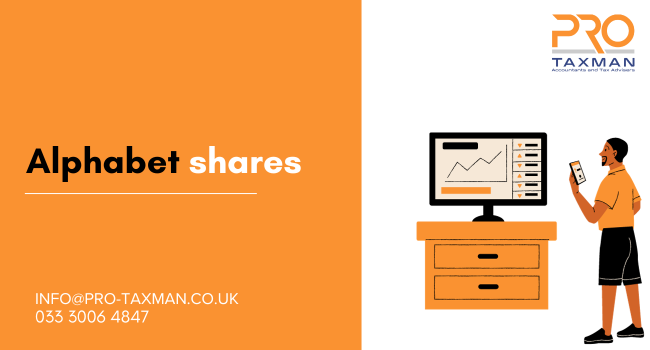Despite dividend tax rates being charged at 33.75% (higher rate taxpayers) or 39.35% (additional rate taxpayers), generally dividends remain the most tax-efficient method of taking profits from a company. On incorporation it is usual for all shares issued to be designated ordinary shares. However, where a company only has one class of share, the right to receive a dividend, to vote and to any proceeds of sale should the company be sold are usually pro-rata which might not be tax efficient overall.
‘Alphabet shares’ enable flexibility, being different classes of shares denominated by a letter (e.g., ‘A’ ordinary, ’B’ ordinary, ‘C’ ordinary shares, etc.). Under such an arrangement, each shareholder could still hold ordinary shares and even the same number of shares but of a different class, enabling the company to authorise dividend payments at different rates to each class of shareholder. Such arrangements are of particular use should one or more of the shareholders be taxed at ‘higher rates’ and the other shareholders are either ‘basic rate’ taxpayers or do not pay tax.
Alphabet shares can also be used to operate employee schemes whereby employees are partly paid in dividends and partly salary. Such schemes can encourage employee engagement in a business whilst also being tax efficient. The classes of shares awarded to employees will vary depending on how the scheme is set up, but typically the shares will be non-voting and allow the shares to be returned to the company should the employee leave.
Another area of business where alphabet shares can be beneficial is where a company is set up as a joint operation between two or more independent companies or two or more families.
Be aware!
When amending the share set-up of an existing company, care must be taken to prevent HMRC querying the scheme’s validity and invoking the settlements rules, especially if the share mix is changed post-incorporation. The settlements legislation is intended to prevent an individual from gaining a tax advantage by making arrangements which divert their income to another person who is liable at a lower tax rate or is not liable to income tax.However, the courts have established that for a settlement to exist there must be an element of ‘bounty’, i.e., the provision of some value, without expecting something equivalent in return.
Therefore, the shares must be gifted outright, having capital rights and it would be preferable for there to be sufficient profits available such that any dividends could be paid on all share classes. A gift of shares to family members does not need to be reported to HMRC unless issued at less than market value or ‘by reason of employment’. If such a situation exists, it may result in an income tax charge liable to be reported to HMRC through the Employment Related Securities (ERS) online service. Any chargeable gain on the gift can be held over assuming the company is a trading company rather than an investment company. However, be aware that such an arrangement could result in the control of the company being altered which may have an adverse effect in the future when the company is disposed of (at least a 5% share in the company is needed – the right of control being a qualifying condition for Business Asset Disposal Relief).
The likelihood of a challenge from HMRC is reduced where there is a commercial reason for having more than one class of share, where the shares have equal rights and where there is no link between the dividends received and salary foregone.
Need professional accounting service or accounting advice? Contact us to book a 15-min Free Consultation with us today.
To find out more please follow us on Facebook, Twitter, or LinkedIn. Feel free to contact us on 0333 006 4847 or request a call back by texting 075 6464 7474

